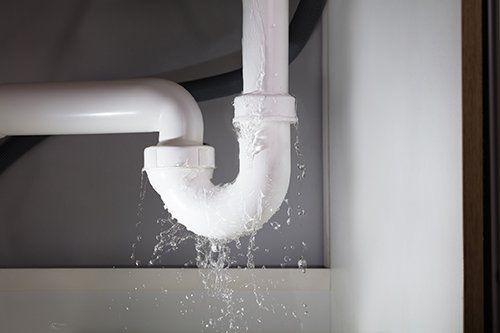Pinpoint Why Water Leaks in Your Home
Pinpoint Why Water Leaks in Your Home
Blog Article
What're your insights and beliefs on How to Find Water Leaks?

Leaks not only trigger waste of water yet can likewise trigger unneeded damage to your residence as well as advertise undesirable organic development. By looking as well as comprehending for day-to-day circumstances that cause leakages, you can shield your house from future leakages and unnecessary damages.
Immediate temperature level changes.
Extreme temperature level modifications in our pipelines can cause them to increase and acquire suddenly. This expansion and tightening might trigger splits in the pipes, specifically if the temperature are listed below cold.
Corroded water supply
As time goes by, your plumbing system ages as well as corrosion such as corrosion may start eating away the pipes. This might be the source of staining or bending on your water pipes. This requires an assessment with your plumber quickly. Take into consideration changing the pipes given that they are at a greater risk of corrosion than the newer designs if our plumbing system is old.
Faulty Pipeline Joints
Pipeline joints can weaken over time, resulting in water leaks. If you have loud pipes that make ticking or banging noises, especially when the warm water is turned on, your pipeline joints are possibly under a lot of stress.
Encroaching origins
Many water leakages start outside the residence instead than inside it. You may see damp spots or sinkholes in your yard, and also that could mean that tree origins are invading water lines creating water to seep out.
Poor Water Connectors
At times, a leak can be created by loosened hose pipes and also pipes that provide your appliances. In instance of a water links leak, you might notice water running straight from the supply line or pools around your appliances.
Obstructed Drains
Obstructed drains pipes could be annoying as well as inconveniencing, however they can sometimes wind up causing an overflow leading to rupture pipes. Maintain eliminating any products that may drop your drains pipes that might block them to avoid such troubles.
All the above are reasons for leakages but not all water leaks arise from plumbing leakages; some leaks might come from roof leakages. All leaks must be repaired promptly to prevent water damages.
Leaks not only trigger waste of water but can additionally create unneeded damage to your house as well as promote undesirable organic growth. By understanding and looking for everyday scenarios that cause leaks, you can secure your residence from future leakages and also unneeded damages. Today, we will look at 6 leakage causes that might be causing your pipes to trickle.
At times, a leakage can be created by loose hoses as well as pipelines that provide your home appliances. In case of a water links leak, you may discover water running straight from the supply line or puddles around your devices.
How To Check For Water Leak In Your Home
How To Check for Leaks
The average household's leaks can account for nearly 10,000 gallons of water wasted every year and ten percent of homes have leaks that waste 90 gallons or more per day. Common types of leaks found in the home are worn toilet flappers, dripping faucets, and other leaking valves. These types of leaks are often easy to fix, requiring only a few tools and hardware that can pay for themselves in water savings. Fixing easily corrected household water leaks can save homeowners about 10 percent on their water bills.
To check for leaks in your home, you first need to determine whether you're wasting water and then identify the source of the leak. Here are some tips for finding leaks:
Take a look at your water usage during a colder month, such as January or February. If a family of four exceeds 12,000 gallons per month, there are serious leaks.
Check your water meter before and after a two-hour period when no water is being used. If the meter changes at all, you probably have a leak.
Identify toilet leaks by placing a drop of food coloring in the toilet tank. If any color shows up in the bowl after 10 minutes, you have a leak. (Be sure to flush immediately after the experiment to avoid staining the tank.)
Examine faucet gaskets and pipe fittings for any water on the outside of the pipe to check for surface leaks.
Undetected water leaks can happen without the home or business owner even realizing. If you suspect a water leak, but not able to find the source. It is time to contact a professional water leak detection service, The Leak Doctor.
How To Find a Water Leak In Your Home
https://www.leakdoctor.com/blog/How-To-Check-For-Water-Leak-In-Your-Home_AE197.html

I came across that blog posting about How to detect water leaks in your home while doing a lookup on the web. Sharing is good. Helping people is fun. I recognize the value of reading our article about How to detect water leaks in your home.
Best in town? Dial. Report this page